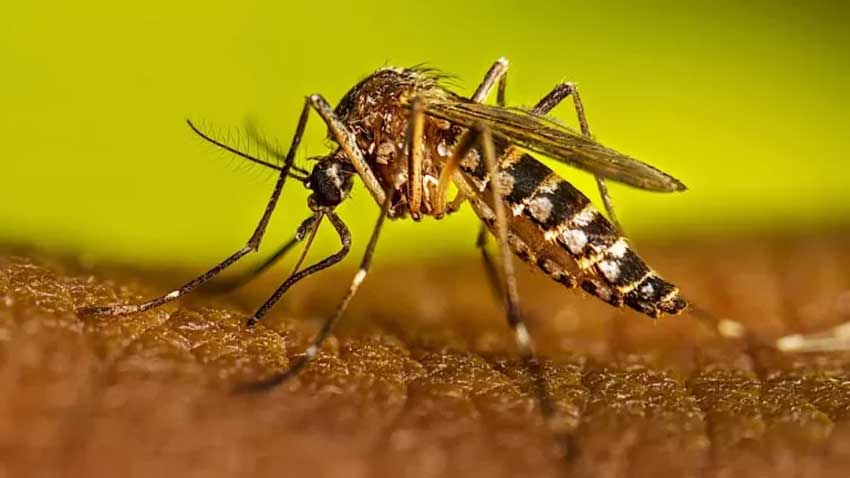
The initiative aims to eliminate dengue mosquitoes and reduce the risk of outbreaks through extensive fogging and public awareness measures.
The anti-dengue medicine spray drive was carried out in densely populated areas to destroy mosquito breeding sites and ensure a cleaner, safer environment for residents.
Authorities have urged citizens to play their part by keeping their surroundings clean and dry. Residents are advised to remove open utensils, flower pots, or water containers that may collect stagnant water — the most common breeding sites for dengue mosquitoes.
They said mosquito prevention measures should be mandatory during morning and evening hours by strictly following the instructions of the Health Department. These are the times when dengue mosquitoes are most active.
Health experts also recommend strengthening the immune system through a balanced diet, hydration, and regular intake of essential vitamins and supplements. They stress that prevention is always better than cure when it comes to mosquito-borne diseases.
For this purpose follow the following steps:
1. Eliminate stagnant water sources
Remove standing water from buckets, flower pots, old tires, and open containers. Dengue mosquitoes breed in clean, still water — even a small amount can be enough.
2. Cover all water storage containers
Make sure all tanks, drums, and water coolers are properly covered. Empty and clean them at least once a week.
3. Keep your surroundings clean
Do not let trash, leaves, or waste accumulate around your home. Keep drains and gutters unclogged to prevent mosquito breeding.
4. Use mosquito repellents and sprays
Apply mosquito repellent creams or sprays on exposed skin, especially in the morning and evening when dengue mosquitoes are most active.
5. Install mosquito nets and screens
Use mosquito nets while sleeping and ensure window and door screens are in good condition to keep mosquitoes out.
6. Wear protective clothing
Wear light-colored, long-sleeved shirts, full pants, and socks to cover as much skin as possible when outdoors.
7. Support community fogging drives
Cooperate with local health authorities during anti-dengue fogging or spray campaigns in your area.
8. Avoid outdoor activities during peak mosquito hours
Try to stay indoors early in the morning and around sunset, as dengue-carrying Aedes aegypti mosquitoes bite during these times.
9. Keep vitamin intake strong
Take vitamins and supplements that help strengthen immunity — Vitamin C and Zinc can help the body resist infections.
10. Follow official health guidelines
Stay updated with advisories from the Health Department and strictly follow instructions during dengue prevention campaigns.
Treatment and Care if Infected with Dengue
1. Visit a doctor immediately
Do not self-medicate. Consult a qualified doctor for diagnosis and proper treatment. Early medical care can prevent complications.
2. Stay hydrated
Drink plenty of fluids — water, fresh juices, and soups — to prevent dehydration caused by fever and sweating.
3. Rest as much as possible
Bed rest helps the body fight infection and recover faster. Avoid strenuous physical activities.
4. Monitor temperature and symptoms
Keep track of fever, pain, and any new symptoms such as bleeding gums, abdominal pain, or vomiting — and report them to your doctor immediately.
5. Avoid painkillers like aspirin and ibuprofen
These medicines can increase the risk of bleeding. Use only paracetamol for fever relief as advised by your doctor.
6. Eat a healthy diet
Consume fruits rich in Vitamin C (like oranges and guavas), and leafy vegetables to boost platelets and immunity.
7. Monitor platelet count regularly
If you’re diagnosed with dengue, your doctor will recommend regular blood tests to check platelet levels.
8. Hospitalize in severe cases
If dengue hemorrhagic fever or shock symptoms appear (bleeding, fainting, difficulty breathing), hospitalization is required for close monitoring and IV fluid therapy.
Dengue prevention starts at home. Keeping your surroundings clean, cooperating with health teams, and staying vigilant during mosquito season can save lives. Early diagnosis and proper care make a full recovery possible in most cases.




